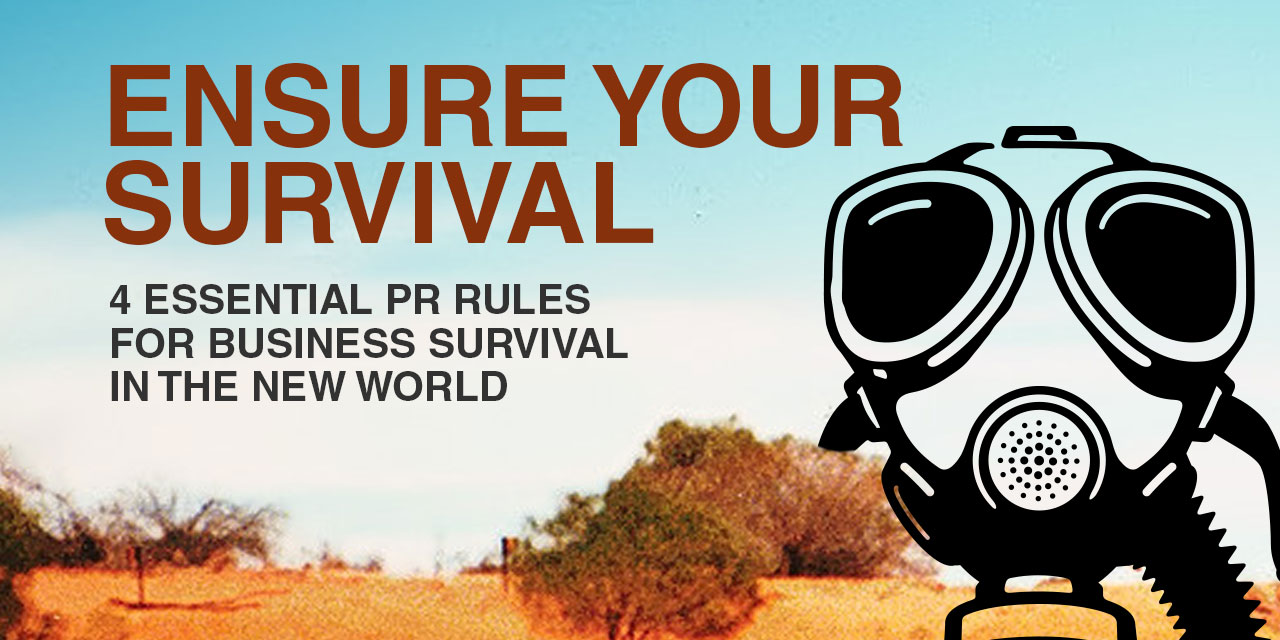4 Essential PR Rules for Business Survival in the New World
If there is a cultural theme to this year—or this decade, really—it’s that we are all now being held accountable by the world. That’s right, the world. Gone are the days of getting away with things. Anything. The Internet has killed the ability to fly under the radar—and social media has hammered the final nails in the coffin. It’s a lesson all businesses and organizations need to accept and digest.
Recently, a video of Rutgers men’s basketball coach Mike Rice berating players created a public outcry. The university saw the video six months ago and the coach was disciplined. But once the people got a hold of the video—once it hit the Web—the flame erupted into a five-alarm fire. The coach was canned within 24 hours. The athletic director a few days later. Now many are calling for the job of the university president.
This is the world we live in now. We have Lance Armstrong confessing decades of lies. Beyoncé caught lip synching at the presidential inauguration. Manti Te’o’s deceased girlfriend revealed to be a hoax. Mitt Romney expressing his disregard for 47 percent of Americans on video. The Internet has exposed individuals and organizations like never before. As a result, we’re seeing public shamings and apologies on a regular basis.
Remember These Essential Rules of Survival
In our modern world of online videos, social sharing and instant news, businesses need to change the way they operate and communicate. Follow these essential rules for business survival in our hyper-connected landscape:
1. Everything Gets Out There
Don’t ever assume you can keep anything quiet anymore. You can’t. Whether it’s the minute it happens or six months down the road, sooner or later word gets out. That’s not the way it was in the past, and businesses, organizations and public figures have had a hard time accepting the shift. Look at the recent Penn State scandal as a prime example of something that would have been successfully swept under the rug a few decades ago. But not today.
The world is different now. Everyone has a video camera in their pocket. People can transmit messages to the entire world in seconds flat via social media. Businesses need to act accordingly. What does that mean exactly? That means you should never say or do anything you wouldn’t want to see posted on the Internet. Your immediate first thought before every action you take should be: Would I want people seeing this on YouTube or reading it on Twitter?
2. The People Have The Power
The age of the Internet has shifted power from corporations to consumers. In the past, organizations had the control. They could tell consumers how it was and they more or less had to accept it. That was before every person was given a potentially booming voice by the world wide web. Now consumers can come together online to rally against you. And, boy, can they get loud.
Remember when Bank of America announced they were implementing debit card fees? Their customers were outraged. They raised their voices, created a movement and brought a tidal wave of bad mojo on the company. As a result, Bank of America dropped the policy. That’s the power of the people. Don’t disregard your customers in the decision-making process or they will make you pay the price. Remember how controversies used to burn out and fade away? They don’t do that now. They snowball until you rectify the situation.
3. The People Can Be Forgiving
If and when you screw up (and most of us will), the people will jump on you in an instant. They will expose you, tear you apart, and beat you down until you come to your senses. At the same time, if and when you do come to your senses, people will forgive you if you are apologetic. But not just apologetic—genuinely apologetic. It will take some time, but people are ultimately forgiving. Why? Because we’re all human. We all make mistakes and we all want to believe we can move on from our mistakes.
Think about Netflix, a company that stumbled in epic fashion a year ago by announcing a massive price hike and a strange business split. Customers were furious. They banded together to bash the company. Netflix apologized and eventually things stabilized. Bank of America reversed course and over time customer aggravation quelled. Think of LeBron James and the PR nightmare that accompanied his TV-broadcast “The Decision”. The once-beloved basketball star became the most-hated man in America overnight. But, over time, he has worked his way back. Which brings us to our next point…
4. You Have To Work To Regain Trust
While the people will forgive you for your blunders, it takes some time. And you have to work your way back into their hearts. You have to show people you have changed. You’ve learned your lesson and now you’re ready to deliver your penance. A recent example: AT&T had a major Internet outage and gave customers a credit on their bill. It costs the company a pretty penny, but it was smart move to prevent the customer dissatisfaction from growing.
People will forgive, but they want to see change and reparations. Maybe even a bit of groveling. Think about Tiger Woods. He was publicly revealed to be cheating on his wife. His public persona took a huge hit. What did he do? He humbled himself. He answered questions he hated answering. He played golf and got picked apart like a mere mortal. And, slowly but surely, he got his game back on track. Now, fans are getting behind him again. It’s essentially the same thing that happened to Netflix. After creating bad will, you need to go out of your way to create good will.
That’s what your business needs to do when you make a mistakes: Humble yourself, make reparations and show the people you’ve learned your lesson. In time, consumer perception will rise in your favor again. But you have to earn it. The great thing about our modern times is the only thing people enjoy more than a public shaming is a great comeback story.
Evolve with the Times or Dissolve into the Past
Remember, the world has changed. We are all connected now and the veil that once covered organizations has been lifted. Make sure you adopt and adapt to the modern business landscape or you may find your organization quickly becoming a faded relic of the old world.







